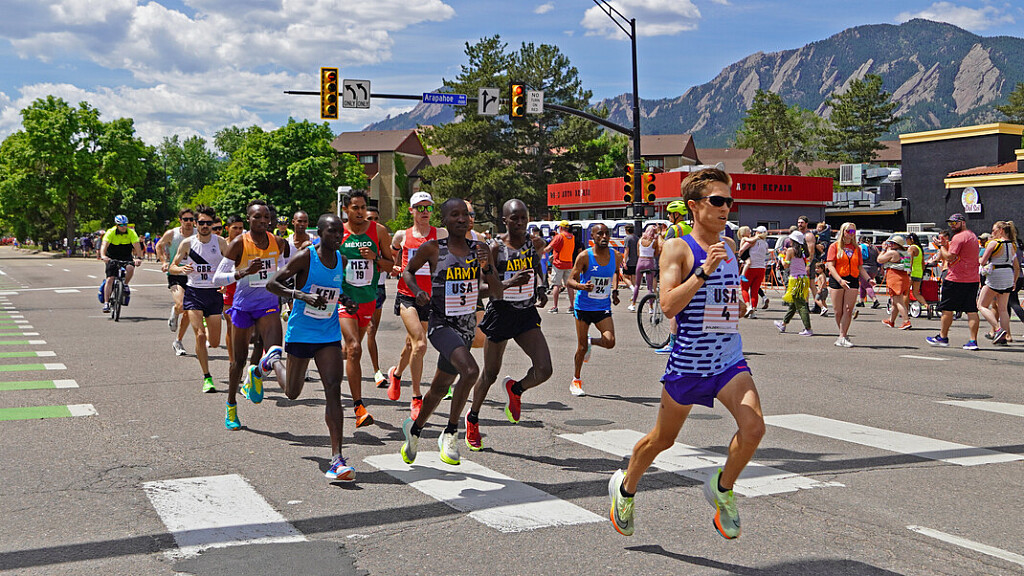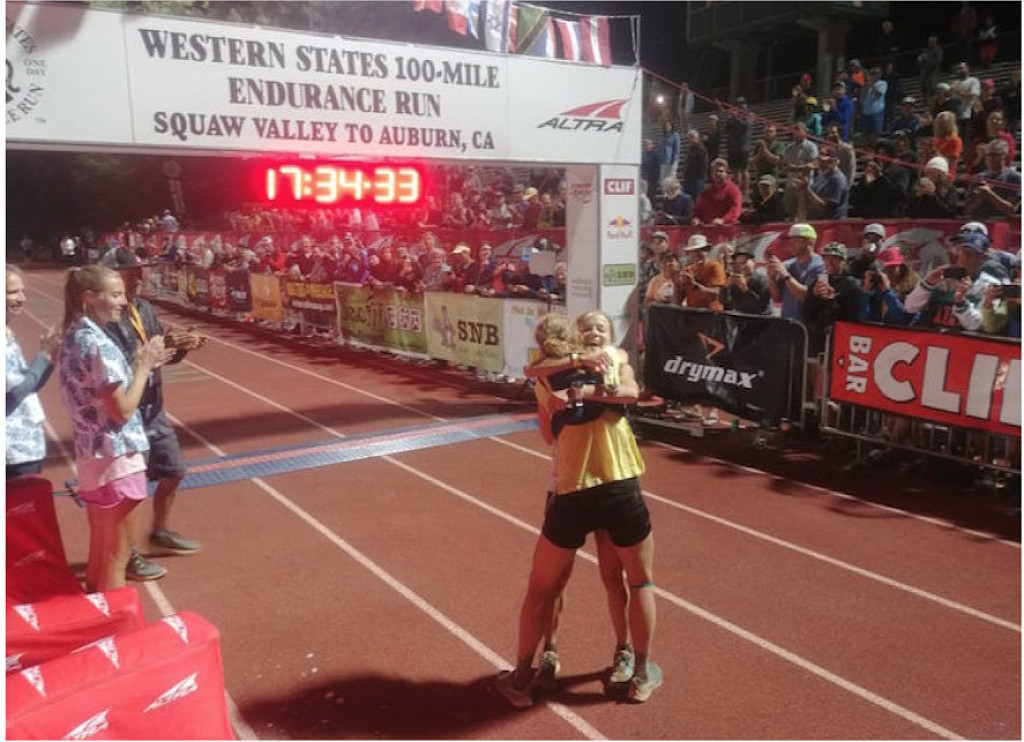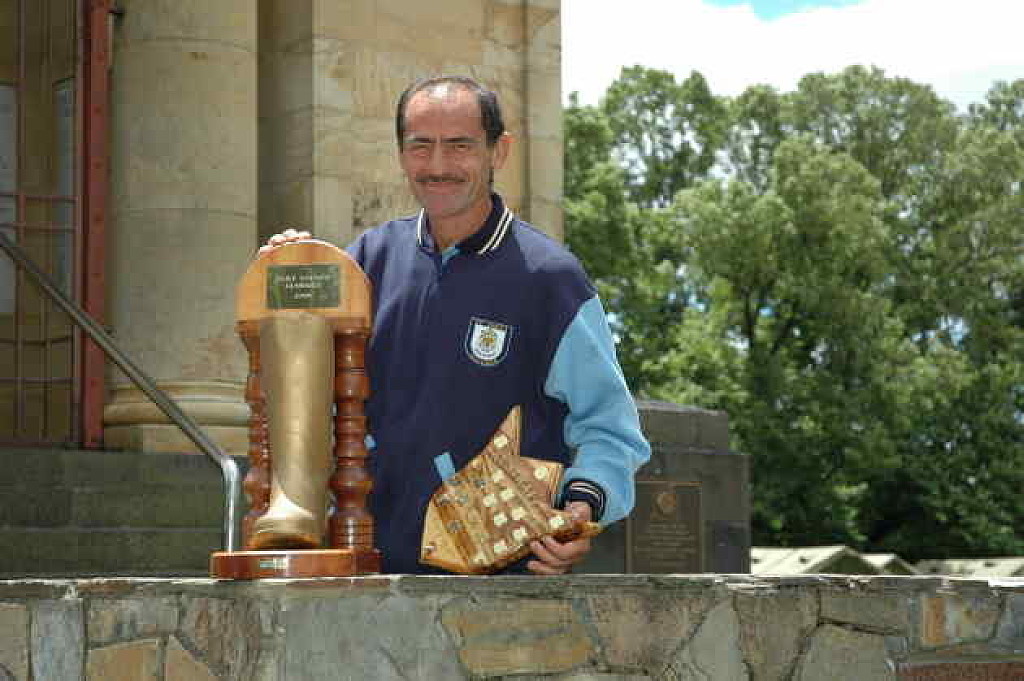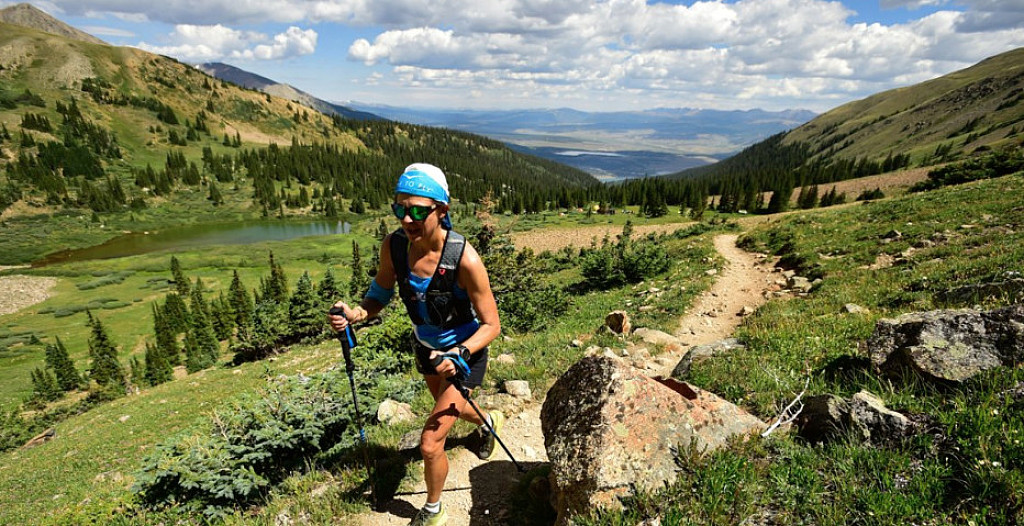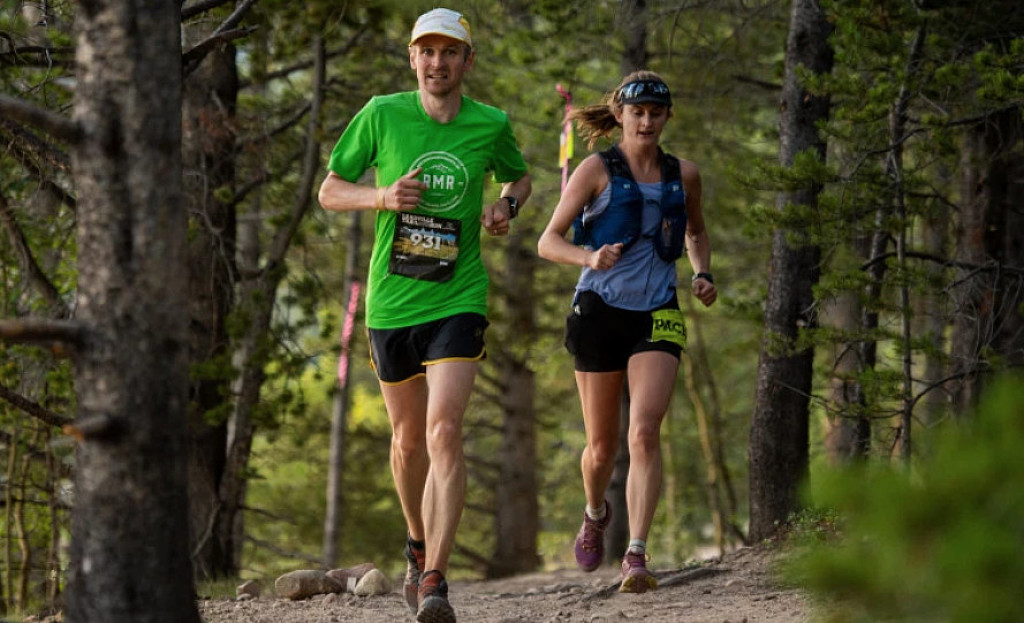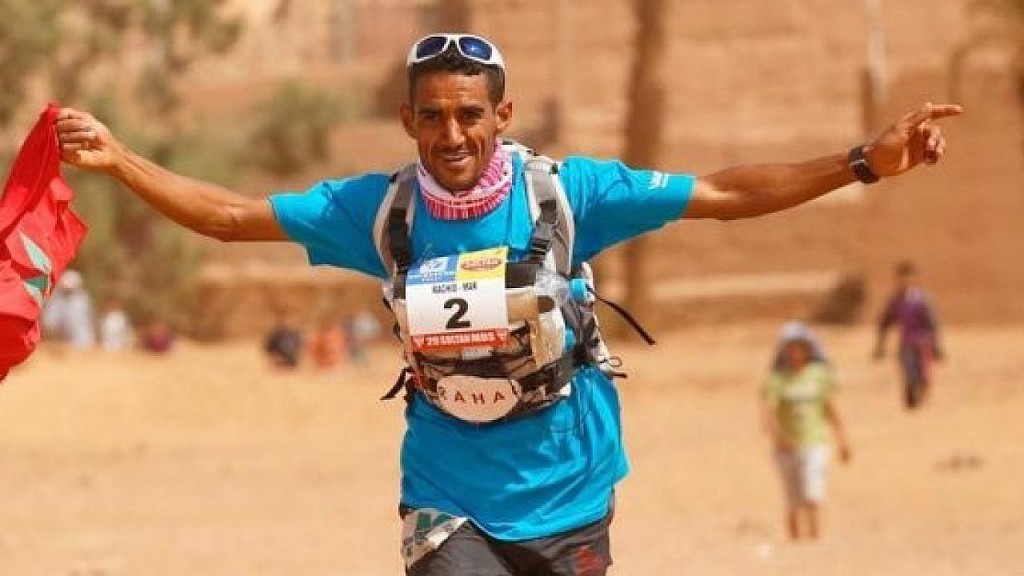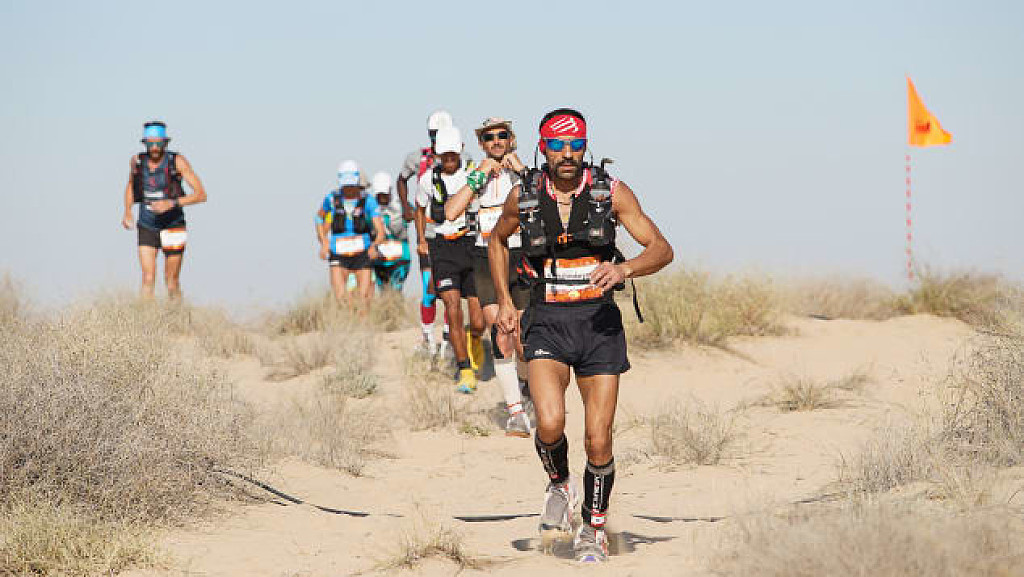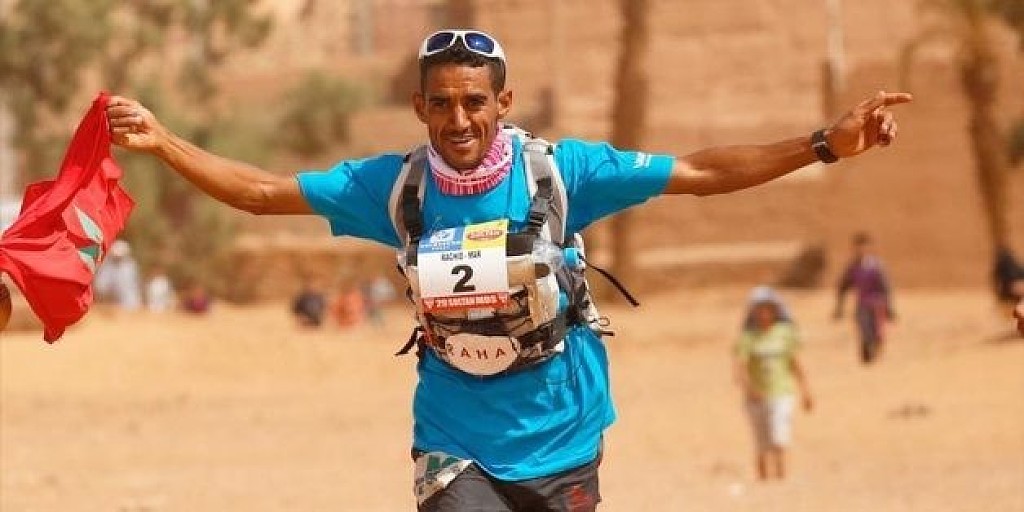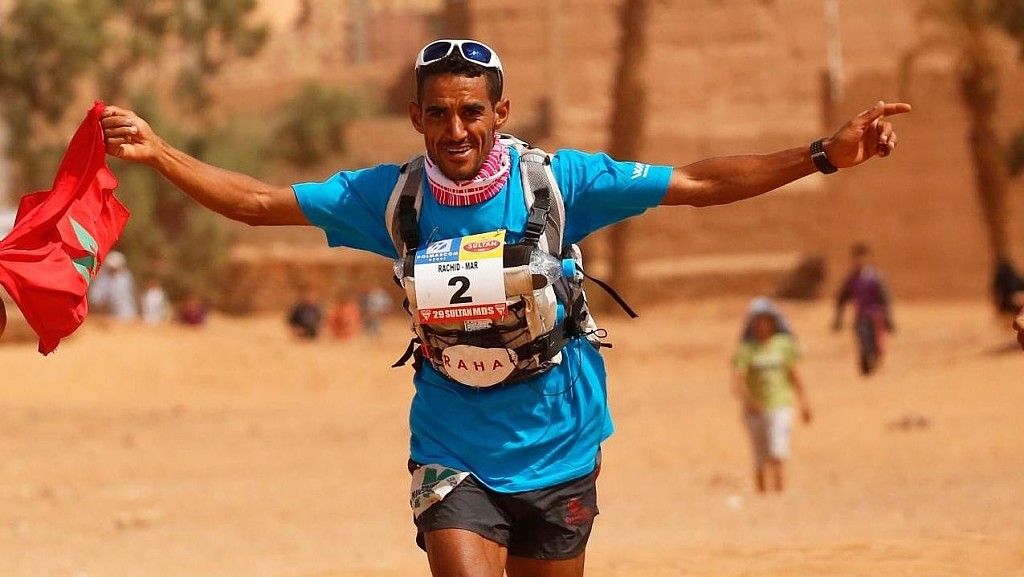Running News Daily
Running News Daily is edited by Bob Anderson. Send your news items to bob@mybestruns.com Advertising opportunities available. Train the Kenyan Way at KATA Kenya and Portugal owned and operated by Bob Anderson. Be sure to catch our movie A Long Run the movie KATA Running Camps and KATA Potato Farms - 31 now open in Kenya! https://kata.ke/
Index to Daily Posts · Sign Up For Updates · Run The World Feed
Articles tagged #Magdalena Boulet
Today's Running News
U.S. Olympic Marathoners Will Race the Bolder Boulder 10K as a Pre-Paris Tune-Up
Conner Mantz, Clayton Young, and Leonard Korir will run in the International Pro Team Challenge on May 27.
Memorial Day is always an exceptional celebration for runners in Boulder, Colorado, but this year, it will have some extra special Olympic flair.
On Monday, May 27, more than 40,000 runners will run through the city that’s known for the iconic Flatirons rock formations, the Pearl Street pedestrian mall, and an exceptionally active population in the annual Bolder Boulder 10K. Now in its 44th year, it’s been one of the top road running races in the U.S. since its inception, and this year will serve as one of the final tune-ups for the men’s U.S. Olympic marathon squad before racing in the Paris Olympics later this summer.
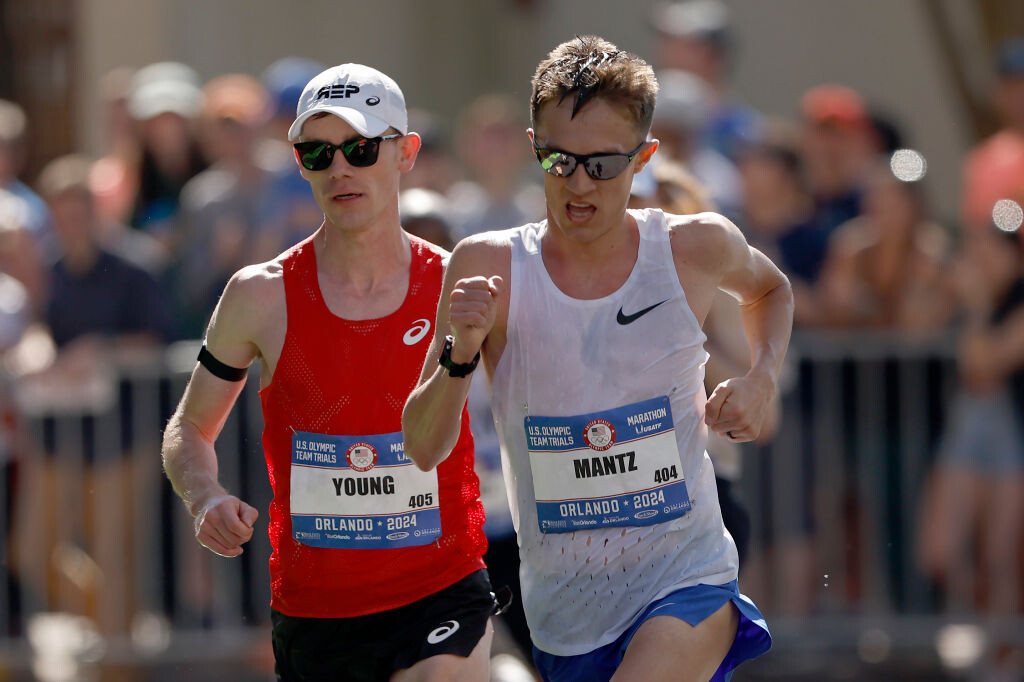
Conner Mantz, Clayton Young, and Leonard Korir, the top three finishers in the 2024 U.S. Olympic Trials who will be racing the marathon in the Paris Olympics on August 10, will be competing as Team USA Red in the Bolder Boulder’s International Pro Team Challenge that follows the citizen’s races. (Korir is expected to officially be named to the U.S. team in early May based on final pre-Olympic international rankings.)
The pro race, which has a prize purse of $83,700 before potential bonuses, is one of the things that makes the Bolder Boulder so unique. After all the runners in 98 citizen waves have completed the race, professional men’s and women’s international teams from more than a dozen countries compete on the same course for team and individual titles. The races feature a staggered start, with women beginning 15 minutes before the men so the winners of each race will finish about 10 minutes apart inside the University of Colorado’s Folsom Field football stadium.
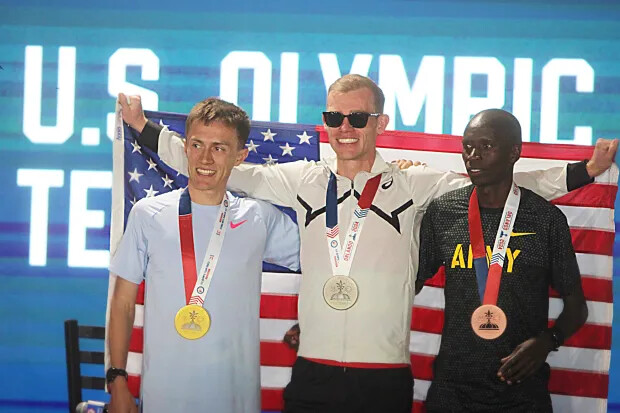
The finishing moments are among the thrilling spectacles in American running. By that point, the stadium is filled with a near-capacity crowd of roaring runners, family, and friends who have been watching the action play out on the massive video screens.
“The finish in the full stadium is like nothing else in the sport,” says Mantz, 27, who won the men’s race last year in 29:08 with a thrilling late-race surge to pass Kenya’s Alex Masai in the final 200 meters before the finish. “It was pretty electric. It took away all the pain you’re feeling mid-race. I was like, ‘Just race as hard as you can.’”
Team USA Red will have plenty of competition, from Team USA White, the secondary American team of Jared Ward, Futsum Zienasellassie, and Sam Chelanga, as well as teams from Kenya, Ethiopia, Mexico, and Rwanda. Teams are scored like a cross country race, with points awarded on the basis of finishing place, which means the team with the lowest combined score for all three runners is the winner. Ties are decided by the positions of the third-place finishers.
The women’s Team USA Red team will be led by defending champion Emily Durgin, along with Sara Hall and Boulder native Nell Rojas. Durgin finished ninth at the U.S. Olympic Trials in February and won the USATF 10 Mile Championships on April 7 in Washington D.C. At last year’s Bolder Boulder, she stormed to victory in 33:24, winning by 24 seconds over Kenya’s Daisy Kimeli.
Hall placed fifth in the U.S. Olympic Trials Marathon on February 3 in a U.S. master’s record (2:26:06) and 15th in the Boston Marathon on April 15. The women’s Team USA White roster will be composed of an all-University of Colorado alumnae squad—Makena Morley, Sara Vaughn, and Carrie Verdon.
“I can’t wait to be back in Boulder for the best day of the year,” says Durgin, 29, who will compete in the U.S. Olympic Trials 10,000 meters on the track in late June with the hopes of making the U.S. Olympic team. “Competing with Nell and Sara will make the experience even better.”
The women’s U.S. Olympic marathon team of Fionna O’Keefe, Emily Sisson, and Dakotah Lindwurm were invited to race in the Bolder Boulder but each runner declined, citing scheduling timing conflicts or a disinterest in racing at Boulder’s lofty altitude (5,430 feet). All of the runners who are racing for the U.S. teams in Boulder live at 4,500 feet or higher.
An Olympic Legacy
Boulder is known as one of the top running meccas in the U.S., in part because elite-level American and international runners have made it their training base since Olympic gold medalist Frank Shorter arrived in the early 1970s. Emma Coburn, Jenny Simpson, Yared Nuguse, Joe Klecker, Jake Riley, Hellen Obiri, and Edna Kiplagat are among the many top-level runners who are currently training in Boulder. Shorter, the 1972 marathon gold medalist, was a co-founder of Bolder Boulder 10K in 1979, and helped it grow into one of the country’s largest races.
Since then, numerous U.S. Olympians have raced in the Bolder Boulder, including Deena Kastor (a three-time women’s champion), Aliphine Tuliamuk (the 2022 women’s winner), Alan Culpepper, Elva Dyer, Ryan Hall, Abdi Abdirahman, Jorge Torres, Shalane Flanagan, Amy Cragg, Magdalena Boulet, and Libby Hickman, as well as Korir (who won it in 2022), and Ward (who was fourth in 2022).
Thanks to Boulder’s robust running community and the prestige of the race, the Bolder Boulder has also always featured fast sub-elite runners competing in the early citizen waves. Yet, the race has also celebrated dedicated middle-of-the-pack runners, as well as the first-time runners and walkers in the later waves. It was one of the first races to have bands playing along the course (as well as belly dancers and other entertainers), runners dressed up in costumes, elite wheelchair races, and in recent years, it has been known for a mid-race slip-and-slide and unofficial bacon aid station.
For the past 25 years, the Bolder Boulder has organized a special Memorial Day tribute—one of the largest in the country—that honors military veterans and new cadets.
The U.S. men’s Olympic marathon team competing in this year’s Bolder Boulder will be a legacy moment for the race, says Bolder Boulder race director Cliff Bosley.
“Having the three men that will represent our country in the marathon at this summer’s Paris Olympic Games is something we are extremely proud of,” Bosley says. “All three ran here last year, and to have them back is just incredible for the race, the city of Boulder, and the sport of running.”
by Brian Metzler
Login to leave a comment
Western States 100 preview: pre-race favourites
Women’s field - There are three former WSER champions entered in this year’s race: Gallagher, who won in 2019, 2016 winner (and 2019 third-place finisher) Kaci Lickteig and 2015 champ Magdalena Boulet. All three women are American, and they’ll be joined on the WSER start line by several of their high-profile compatriots. Brittany Peterson, the second-place finisher from 2019, will be in the race for just the second time in her career, along with Nicole Bitter, the seventh-place woman in 2019, which was also her WSER debut.
Pascall and Drew headline the international entries in the women’s field. Pascall, who hails from Great Britain, finished fourth in 2019, and she is a serious threat to take the win this year. Earlier in 2021, she won the Canyons 100K in California, and in 2020, she broke the Bob Graham Round FKT in her home country. She has also recorded two top-five finishes at the past two editions of the famed Ultra-Trail du Mont-Blanc. Pascall is in incredible form, and she’s a threat to run away with this year’s race, which would make her the first non-American woman to win the WSER title since Ellie Greenwood (who is British but lives in Canada) in 2012.
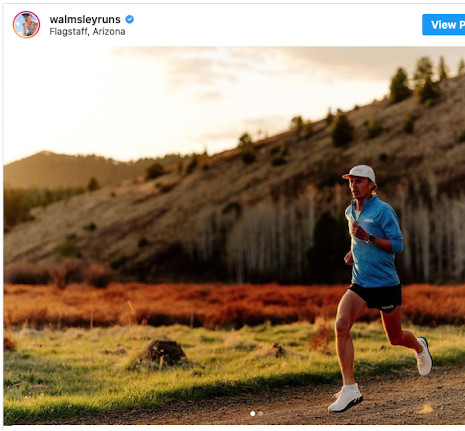
This will be Drew’s second WSER appearance, and she, too, has what it takes to improve on her result from 2019. She has several big wins to her name, including top finishes at the Chuckanut 50K and Canyons 100K in 2019. She has also represented Canada at the IAU Trail World Championships. B.C.’s Sarah Seads will also race in California, making her first WSER appearance.
When it comes to debut WSER runs, there are several big names to watch. New Zealand’s Ruth Croft is having a tremendous season, with a pair of big wins. Her first came at the Tarawera Ultra in Rotorua, New Zealand, where she won the overall title in the 102K race. A few months later, she was in action in Australia, where she won a 50K race in Katoomba, a town west of Sydney, at Ultra-Trail Australia.
France’s Audrey Tanguy is also running WSER for the first time. Tanguy has had a great year so far, first winning the Hoka One One Project Carbon X 2 100K event in Arizona in January and then following it up with a third-place finish at the Canyons 100K in April. She is also a two-time UTMB TDS winner (2018 and 2019).
Finally, there’s American ultrarunning star Camille Herron. The owner of multiple American and world records, Herron is another threat for the win at WSER. She has won the Comrades Marathon, multiple world championships and many other races around the world, and it shouldn’t be a surprise if she adds a top WSER finish to her resume.
Men’s field - The only WSER champion in the 2021 field is Walmsley, who has won the past two editions of the race. In 2018, he won in 14:30:04, and a year later, he set the course record with an incredible 14:09:28 run. This year, he has raced one ultramarathon, Hoka’s Project Carbon X 2, which he won in 6:09:26, coming extremely close to breaking the 100K world record of 6:09:14. That was several months ago, but if his fitness is anywhere close to where it was at that race, he should be able to lay down another historic WSER run.
Walmsley’s fellow American Jared Hazen, the 2019 runner-up, is also set to race this year. In 2019, Hazen ran a remarkable time of 14:26:46, which would have easily won him the WSER title if Walmsley hadn’t been in the race. He’ll be looking to take that final step onto the top of the podium this year.
A pair of Americans making their WSER debuts are Tollefson and Hayden Hawks. Tollefson has several big wins to his name in the past year alone, including titles at the 2020 Javelina Jundred 100 Miler and USATF 50-Mile Trail Championships. He has also recorded victories at the 120K Lavaredo Ultra-Trail race in Italy in 2019 and the 100K Ultra-Trail Australia in 2017, along with a pair of third-place finishes at UTMB in 2016 and 2017.
Hawks has won many races throughout his career, including the JFK 50-Miler in 2020. He set the course record of 5:18:40 at that race, beating Walmsley’s mark of 5:21:28 from 2016. The WSER course is twice as long as the JFK 50, but Hawks has proven he can match or better Walmsley’s efforts, so it will be interesting to see how he fares in California.
by Running Magazine
Login to leave a comment
Legendary Yiannis Kouros, one of the biggest names in ultramarathons, will be present in Dubai to cheer on participants as they take part in the world's longest desert race, the 300-km Al Marmoom Ultramarathon, for a share of the $100,000 prize-purse
Kouros, 63, is often described as the modern-day Pheidippides, the Greek hero whose run from Marathon to Athens is the inspiration behind the Olympic sport of marathon. He has broken more than 160 world records in long-distance running, including the fastest 100-miles on roads, and the record for 1,000-km on both track and road, and 1,000 miles on road. He also set a new mark for the 875km Sydney to Melbourne Utramarathon in 1985, crossing the finish line in 5 days, 5 hours, 7 minutes and 6 seconds.
"I'm really excited to be coming to Dubai this December to see desert ultra-running history being made, when ultra-runners from around the world race across 300km of tough desert terrain," said Kouros, who is also remembered for breaking six wold records in the New York City Six-Day Race in 1984.
He added: "Dubai has created the ultimate endurance running event and I'd like to say well done to Dubai Sports Council for organizing such an epic event that any long distance runner would love to take on.
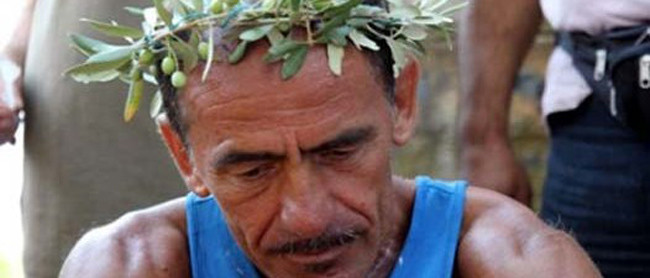
"Dubai is the place to be this December to witness the world's best take on the world's longest desert ultramarathon - AMUM19."
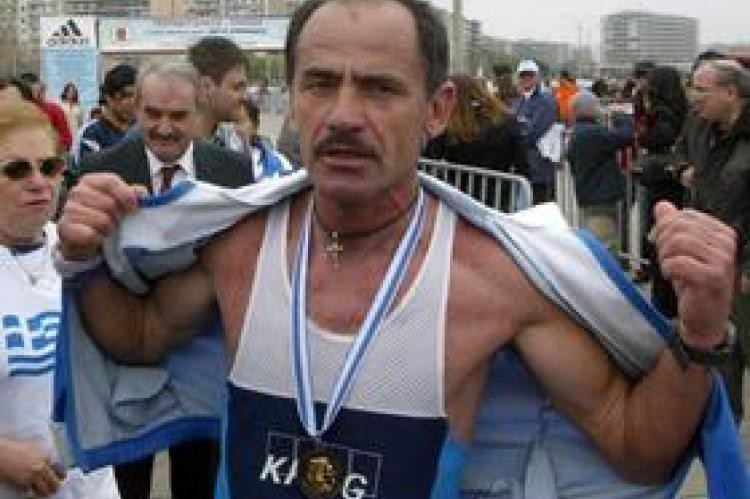
Welcoming Kouros to Dubai and the 2019 Al Marmoom Ultramarathon, Saeed Hareb, secretary general of Dubai Sports Council, said: "Yiannis Kouros is one of the legends of ultra-running and his presence here for the 2019 Al Marmoom Ultramarathon will be a huge inspiration for all the participants. He is a true legend of the sport and a modern-day Pheidippides indeed, and we are looking forward to welcoming him to Dubai.
"The world's best endurance and ultra-runners, including the two defending champions Rachid El Mourabity and Magdalena Boulet, have already confirmed their spots for the second edition of the Al Marmoom Ultramarathon.
"The first edition of the Al Marmoom Ultramarathon was a huge success with elite ultra-runners from 48 countries taking part in the 270km race. Media from around the globe covered the event, while CNN International flew down a team to Dubai for the event. This year, the Al Marmoom Ultramarathon is going to be even bigger and better. The distance has been increased to 300-km, and so the competition is going to be stiffer.
"The Al Marmoom Desert Conservation Reserve is the perfect place to host an event like this and the Ultramarathon provides participants with a unique opportunity to experience the beauty and tranquility of our deserts."
Alongside the main event, the grueling 300-km Ultramarathon, the race also offers lesser distances of 110km and 50km to encourage endurance runners from the UAE and region to participate. The 300-km race will be completed in 5 days and over four separate routes starting from the base camp situated in Al Qudra. The 110km race will be a non-stop 24 hour run, while the 50-km race will be completed in one day.
All three races are self-sufficient with water and tents supplied, as well as medical and safety support given. Top rankings and special recognition winners in all three races will get a share of the prize money, while all finishers will receive medals and T-shirts.
Login to leave a comment
Al Marmoom Ultra Marathon
Launched under the initiative of UAE Vice President and Prime Minister and Ruler of DubaiHis Highness Sheikh Mohammed bin Rashid Al Maktoum, Al Marmoom Desert Conservation Reserve will host the world's longest desert ultra-run Meraas Al Marmoom Ultramarathon. Meraas Al Marmoom Ultramarathon is a 300km, 100km and 50km race across desert terrain and will be held 9th to 11th December...
more...Yes, raw speed helps. But it isn’t everything. Why Older Runners Have an Edge in Ultra Races
There were two first-time winners at last weekend’s Leadville Trail 100 Run, as Ryan Smith of Boulder, Colorado, and Magdalena Boulet from Berkeley, California, persevered on the out-and-back course in the Colorado Rockies. Smith won the men’s race in a time of 16:33:24, while Boulet finished in 20:18:06 and, in a salute to her Western environs, broke the tape wearing a black Stetson hat.
Beyond their individual triumphs, Smith and Boulet also chalked one up for the 40+ demographic; Smith turned 40 this year, while Boulet is a spry 46. For those keeping score, this is actually the second consecutive year where both the male and female winners at Leadville were in their fifth decade. In 2018, it was Rob Krar (41) and Outside contributing editor Katie Arnold (46) who stood atop the podium in a race which is among the oldest 100-milers in the country and bears the prestige of being included in the so-called “Grand Slam of Ultrarunning.”
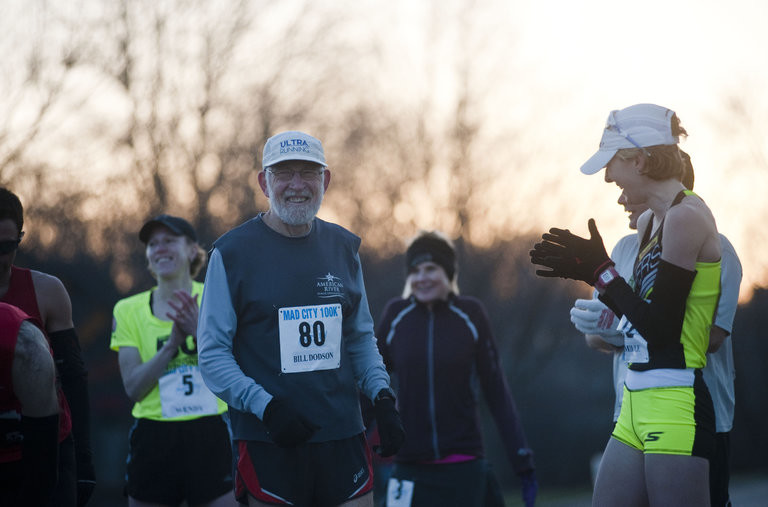
How to account for this quadragenarian dominance? Road racing snobs might point out that the field size in ultras is generally quite small and that these events are hence less competitive than big city marathons with thousands of participants. This year, the Leadville 100 had fewer than 400 finishers. Then there’s the fact that the elite ultrarunning scene, despite its increased mainstream visibility over the past decade, is still largely unprofessional, in the sense that weekend warriors can carry the day at certain marquee events. Smith works full-time as a software engineer, and Boulet is VP of research and development at GU Energy Labs. While this amateur spirit might be a point of pride for ultrarunners who don’t want their sport to devolve into the doping-riddled morass that is professional track and field, one could argue that it also subtly discourages the best pro distance athletes (i.e. Kenyan and Ethiopian runners) from turning to the trails. This, in turn, makes the podium perpetually attainable for the super-fit middle-aged hobbyist.
But maybe there’s more to it than that. Given the amount of stuff that can go wrong when you’re running 100 miles in the mountains, perhaps more “mature” athletes might have an advantage when raw speed is less essential than psychological resilience.
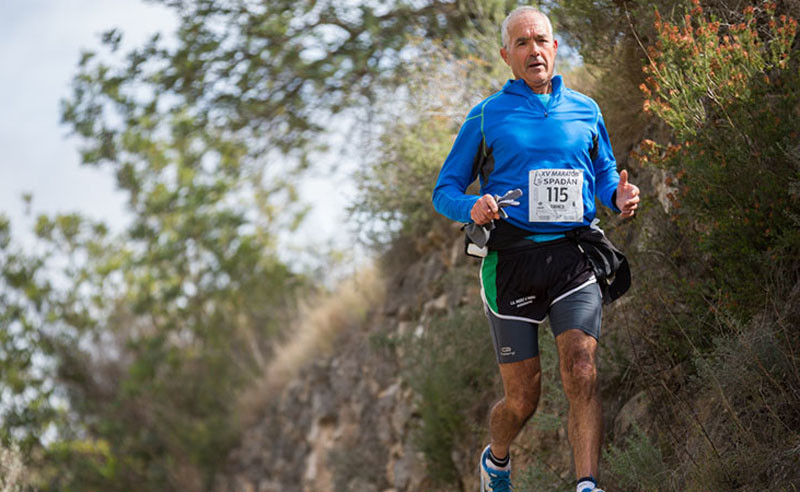
“Ultrarunning is about problem solving and being fast is just one piece in a larger puzzle,” says Boulet, who was back at work on Monday morning. “There are so many other pieces that need to fall into place in order to have a successful race.”
Boulet would know. In 2015, she triumphed at Western States, arguably the most vaunted ultra on U.S. soil. Last year, she won the Marathon des Sables, a 156-mile, six-day stage race in the Sahara Desert that frequently gets cited as one of the world’s most difficult races.
Boulet also has the rare distinction of having successfully transitioned into the world of ultrarunning after a previous career as a pro marathoner and road racer. In 2008, she made the U.S. Olympic team in the marathon. The following year she was the first American woman (sixth overall) at the NYC Marathon. With the exception of Kara Goucher, who contested her first trail marathon earlier this summer, Boulet is surely the most accomplished road racer to take a serious shot at competitive trail running.
“I was able to bring the experience from my marathon and road career into trail racing, but with a lot more experience and a lot more patience,” she says. “I’m a lot kinder to myself and my body.”
For his part, Sands, who describes himself as a “serious amateur,” agrees with Boulet that being the best pure runner is only one factor when a race involves one hundred miles of elevation change, gnarly terrain, and volatile weather. Unlike in shorter road races, where it is much more feasible to execute a race plan to perfection, in ultras the objective isn’t so much to avoid mishaps, as to make the best of it when they inevitably happen.
“Typically success in these longer events is not about getting everything dialed next to perfectly, because that’s just so rare,” Sands notes. “It’s really about, when some issue arises and you’re faced with a challenge, how well can you react in the moment to overcome it.”
This latter point reminded me of a recent email exchange I had with Robert Johnson, the editor and co-founder of Letsrun.com and a road-racing snob if ever there was one. Johnson made the point that one thing he finds intriguing about ultras is that there is still an aspect of the “unknown.” He noted that training for traditional distance running had more or less been “solved”; everyone already knows, more or less, how to prepare for races. Ultra-running, on the other hand, is still very much an undiscovered country.
Boulet agrees with this assessment.
“After twelve years of doing marathons, I got to the point where I had that formula dialed-in really well with my coach. We could look at a block of training and know what that translates into [performance-wise]. It was very predictable,” she says.
But the ultra scene offers enough potential variation that, Boulet notes, each race can necessitate its own specific training cycle. In the lead-up to Marathon des Sables, for instance, she spent weeks running on sand.
“For someone who is older, ultras are really exciting because you’re not doing the same thing over and over. They keep changing,” Boulet says.
“I think that’s also a key to longevity in the sport. To keep it interesting—and fun.”
Login to leave a comment
Boulder’s Ryan Smith wins 2019 Leadville 100 with consistent second-half pacing
Boulder’s Ryan Smith won the Leadville 100 trail run on Saturday night thanks to consistent second-half pacing that left his rivals unable to respond. It was the biggest win of his ultrarunning career.
The Boulder-based runner, who came to the United States from the United Kingdom and works full-time a software engineer, was greeted at the finish by his wife and almost 2-year-old daughter. He turned 40 years old this year.
“There’s just a lot of running in the race,” Smith said, referring to the long flat sections along much of the course. “It really favors a flat runner rather than a mountain runner, and I typically do a lot of mountain stuff.”
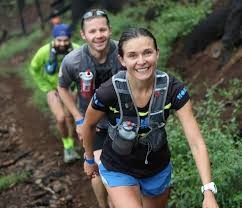
His win — in 16 hours, 33 minutes, 25 seconds — was far from expected. Smith was not among the pre-race favorites to win, and he wasn’t feeling well leading into the Twin Lakes aid station near the 40-mile mark. But at the turnaround at Winfield, he held his pace steady, averaging around 10 minutes per mile for the rest of the race.
“Always be closing!” his last pacesetter, Clare Gallagher, herself a Leadville 100 winner in 2016, yelled to him after his win. She was referring to Smith’s penchant for strong finishes, and to the casual observer, it might have seemed that Smith was surging. But consistent pacing that late in a race — he averaged 9:58, 9:53, 9:59, 9:54, 10:01, 9:55, 9:54 for all of the second half checkpoints — is remarkably difficult to achieve.
His win came after Jared Hazen, the runner-up to this year’s Western States 100, set out a blistering early pace, intent on breaking the course record of 15:42 set by Matt Carpenter in 2005. Late Saturday morning, while racing back toward Twin Lakes, he told a Denver Post reporter along the trail that he had dropped out and “needed to get to an aid station.” He had turned around before the Winfield aid station — the halfway point of the course.
The Leadville is infamous for seducing runners into racing too hard too early, with flat fields and trails before turning into a punishing climb to 12,600 feet over Hope Pass.
For the women, Magdalena Boulet of Oakland, Calif., finished in 20:18:07 in her first Leadville 100. Boulet, who won her first-ever 100-miler in 2015 at Western States and was a U.S. Olympic marathoner in 2008, said she was inspired to run at Leadville after crewing for her boss at GU Energy Labs a few years ago. She had acclimatized at altitude for only two weeks before Saturday’s run. Boulder’s Cat Bradley was the second woman to cross the finish line in 20:45:48.
Login to leave a comment
Leadville Trail 100 Run
The legendary “Race Across The Sky” 100-mile run is where it all started back in 1983. This is it. The race where legends are created and limits are tested. One hundred miles of extreme Colorado Rockies terrain — from elevations of 9,200 to 12,600 feet. You will give the mountain respect, and earn respect from all. ...
more...Two defending champions Rachid El Mourabity and Magdalena Boulet, will be back in Dubai to defend their Al Marmoom Ultramarathon title
El Mourabity of Morocco and American Boulet took the men's and women's crown in the inaugural edition of the Al Marmoom Ultramarathon last December with El Mourabity clocking 31 hours, 17 minutes and 29 seconds across the four-day and 270-km race, and Boulet finishing with a time of 37:27:59.
Both have now confirmed, along with a number of other elite ultra-runners, for the second edition of the Al Marmoom Ultramarathon, which will be a longer 300-km race and spread across five days with a prize purse of $100,000.
"Some of the world's best endurance and ultramarathon runners, including the defending champions Rachid El Mourabity and Magdalena Boulet, will be back in Dubai to take part in the second edition of the Al Marmoom Ultramarathon," said Nasser Aman Al Rahma, Assistant Secretary General of the Dubai Sports Council.
"The first edition of the Al Marmoom Ultramarathon was a huge success with elite ultra-runners from 48 countries taking part in the 270km race. Media from around the globe covered the event, while CNN International flew down a team to Dubai to cover the race and the Al Marmoom Desert Conservation.
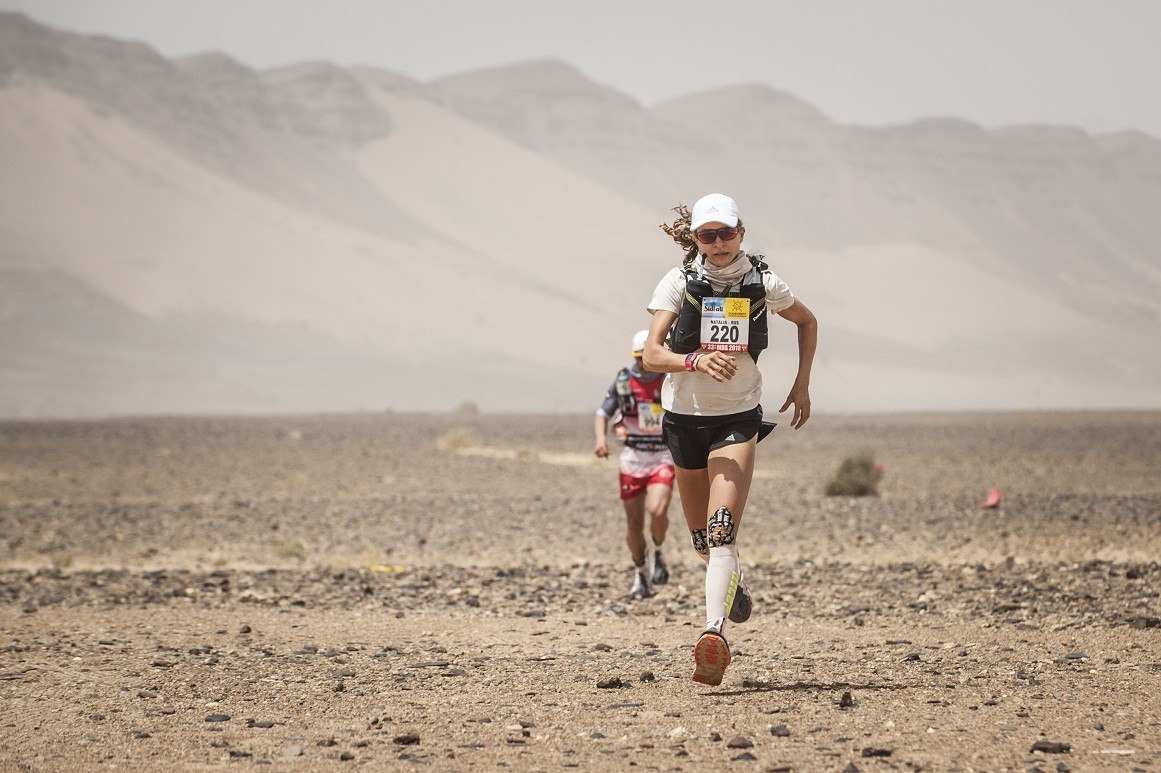
"This year, the Al Marmoom Ultramarathon is going to be even bigger and better. The distance has been increased to 300-km, and so the competition is going to be stiffer. We have developed a special GPS system to track participants this year and there will be drones covering the full race. We will have a much bigger race headquarters as well and a lot more tents for athletes to relax in.
"The Al Marmoom Ultramarathon is a translation of the guidance of our wise leadership to take advantage of the many opportunities that the Al Marmoom Desert Conservation offers and to encourage all segments of our society to use the Al Marmoom for their sports and outdoor activities. The Reserve is the perfect place to host this challenging event and provides participants with a unique opportunity to experience the beauty and tranquillity of our deserts."
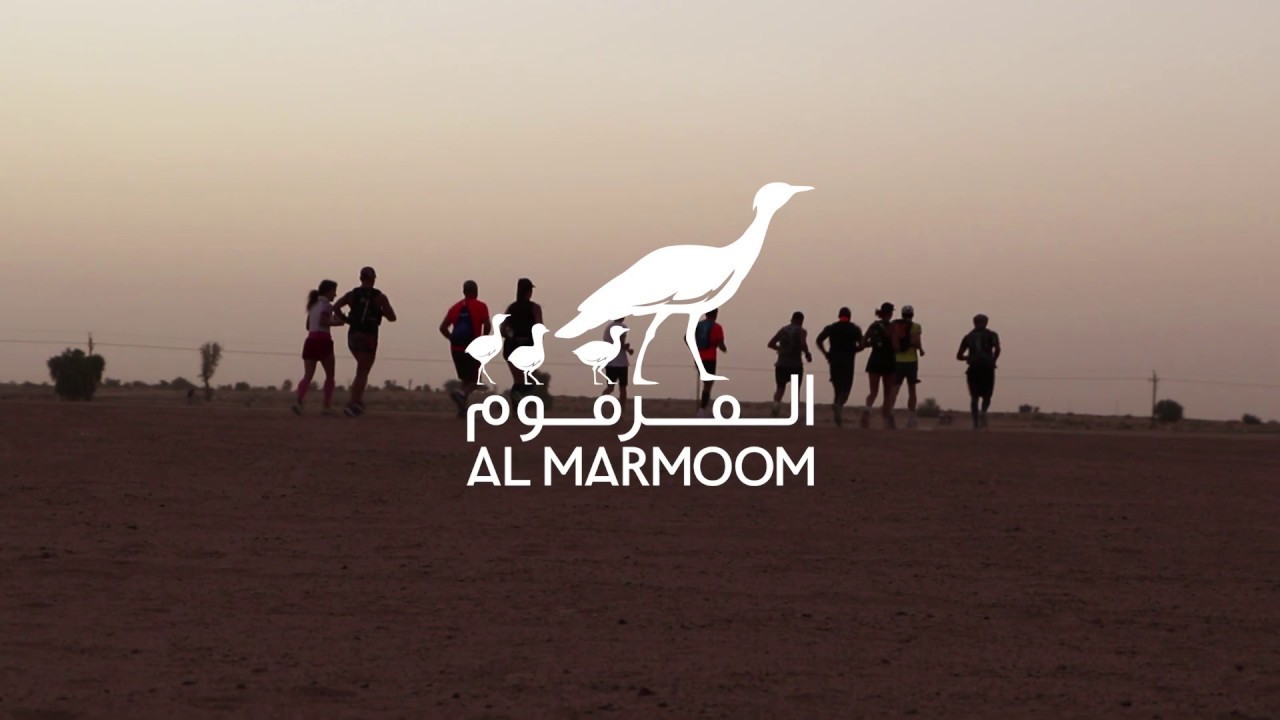
Alongside the main event, the gruelling 300-km Ultramarathon, the race also offers lesser distances of 110-km and 50-km to encourage endurance runners from the UAE and region to participate. The 300-km race will be completed in five days and over four separate routes starting from the base camp situated in Al Qudra. The 110-km race will be a non-stop 24 hour run, while the 50-km race will be completed in one day.
All three races are self-sufficient with water and tents supplied, as well as medical and safety support given. Top rankings and special recognition winners in all three races will receive prize money, and all finishers will receive medals and t shirts.
The organisers are encouraging runners who wish to sign up and prepare for the event to join the weekly 'build up runs' training programme, which will start Friday, August 30, and run for 12 weeks leading up to the main event.
Login to leave a comment
Al Marmoom Ultra Marathon
Launched under the initiative of UAE Vice President and Prime Minister and Ruler of DubaiHis Highness Sheikh Mohammed bin Rashid Al Maktoum, Al Marmoom Desert Conservation Reserve will host the world's longest desert ultra-run Meraas Al Marmoom Ultramarathon. Meraas Al Marmoom Ultramarathon is a 300km, 100km and 50km race across desert terrain and will be held 9th to 11th December...
more...168 mile Al Marmoom Ultramarathon is one of the world’s longest desert ultras
Set in a rugged national conservation area, the Al Marmoom Ultramarathon claims to be one of the longest desert ultra in the world. The 270km (168 mile) route was run over five days in December in temperatures as high as 35C (95F),.
In its inaugural year, 19 runners (15 men and four women) completed the race, with 36-year-old Moroccan Rachid El Morabity -- a six-time Marathon des Sables winner -- crossing the finish line first in 31 hours and 17 minutes. Eleven runners didn't make it, as well as many others in the shorter 100 km and 50 km versions of the race.
Race manager Ole Brom oversaw of the health and wellbeing of the runners. Running these distances across energy-sapping sand amounts to an extreme sport, the Norwegian told CNN, and "not something that is taken on lightly."
"On the first day after about 40 km, about 12 km from the end, (one athlete) collapsed unconscious," says Brom. "He ignored the signs of dehydration and he suffered the consequences."
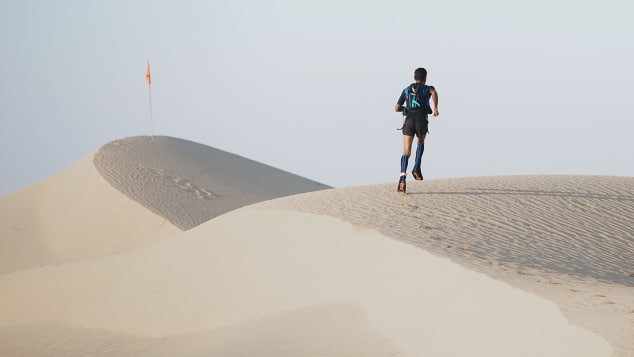
Stretches of the race, including one 100-kilometer leg, were only accessible by air for first responders, explained event director Ruth Dickinson. Athletes wore tracking devices and distress beacons and carried anti-venom pumps in case of snake bites.
Running across the dunes was not without its rewards. "(It's) really peaceful," says 45-year-old female race winner Magdalena Boulet, "(you) can't really see anything for miles and miles."
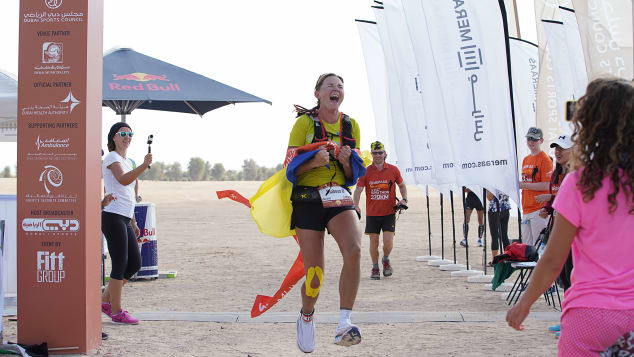
"It's mesmerizing," Brom adds. "On certain routes there were Oryx, there were sand gazelle, mountain gazelles. We saw eagles (and) a lot of different migrating birds." (As a designated conservation area, runners were penalized for dropping trash and required to bury human waste, should nature call.)
There were still smatterings of luxury, with racers provided hot water, tents and massages between stages. Brom says some athletes told him they'd return for the toilets alone.
The Al Marmoom Ultramarathon will join 400-plus local sporting events ranked by the Dubai Sports Council. Acting director of events Ghazi Al Madani says planning for 2019's race is already underway.
Brom believes transit hub Dubai could become a nexus for desert ultra runners, playing host to regular events in its "backyard." "Ten percent of the landmass of Dubai is sand," he adds, "so it makes perfect sense."
by Tom Page
Login to leave a comment
Al Marmoom Ultra Marathon
Launched under the initiative of UAE Vice President and Prime Minister and Ruler of DubaiHis Highness Sheikh Mohammed bin Rashid Al Maktoum, Al Marmoom Desert Conservation Reserve will host the world's longest desert ultra-run Meraas Al Marmoom Ultramarathon. Meraas Al Marmoom Ultramarathon is a 300km, 100km and 50km race across desert terrain and will be held 9th to 11th December...
more...Moroccans won the world’s longest desert Al Marmoom ultra marathon in the men’s division
El Morabity finished the world’s longest desert Al Marmoom ultra marathon of 270 kilometers in under 32 hours (31:17:29), ahead of French runner Muriel Robert and Iranian runner Akbar Najdi Niryan.
In the women’s category, Moroccan Aziza Raji achieved finished second (40:03:20) behind American runner Magdalena Boulet (37:27:59), while Russian Oskana Riyapova finished third (42:17:43).
The sporting event brought together runners from 35 countries who specialize in endurance races.
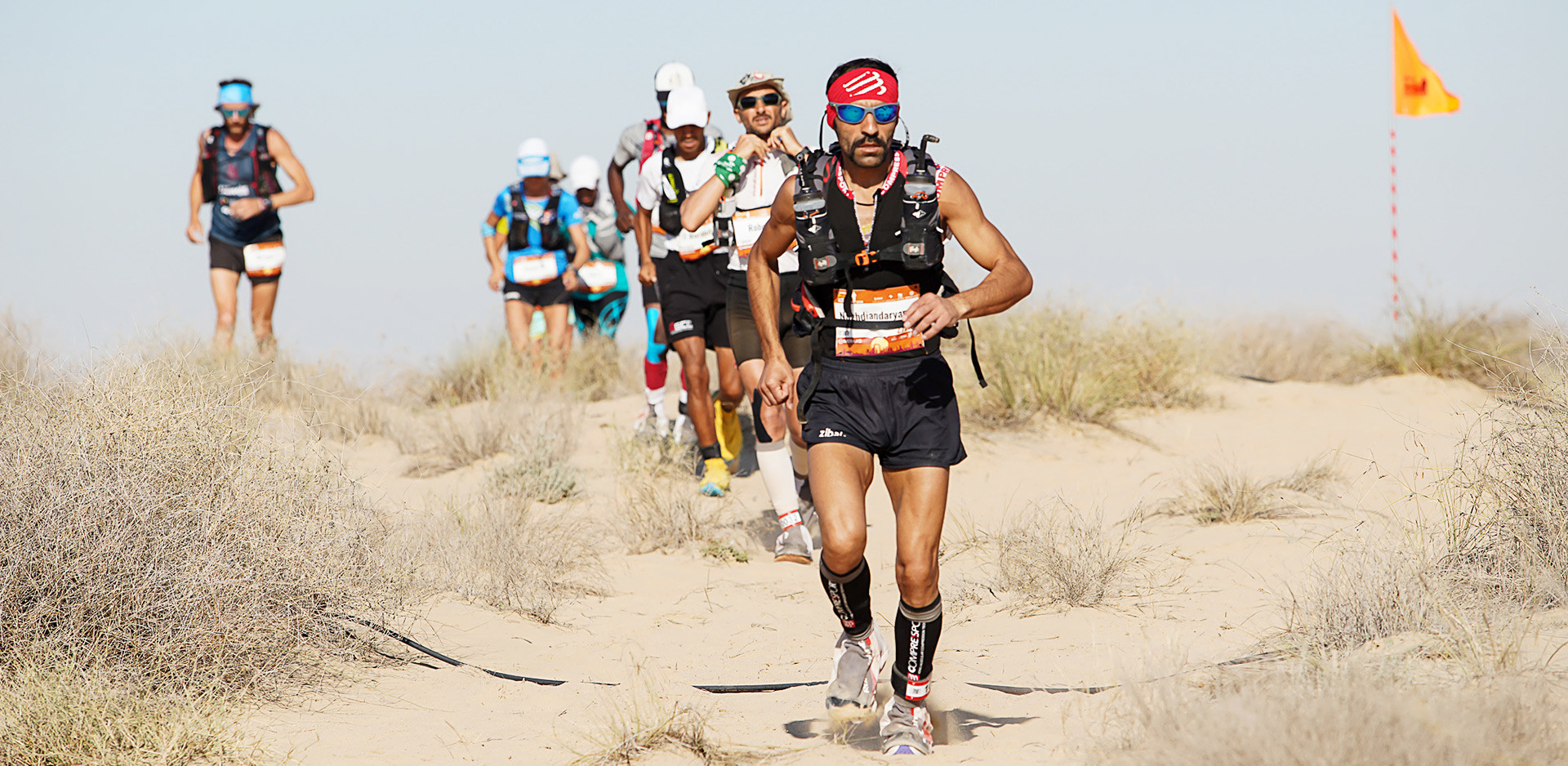
The victory comes a week after Rachid El Morabity and his brother Mohammed scored Morocco a gold medal during the Oman Desert Marathon. The brothers won first and second places, respectively.
Login to leave a comment
Moroccan Rachid claimed his sixth victory in the Marathon Des Sables
Login to leave a comment


